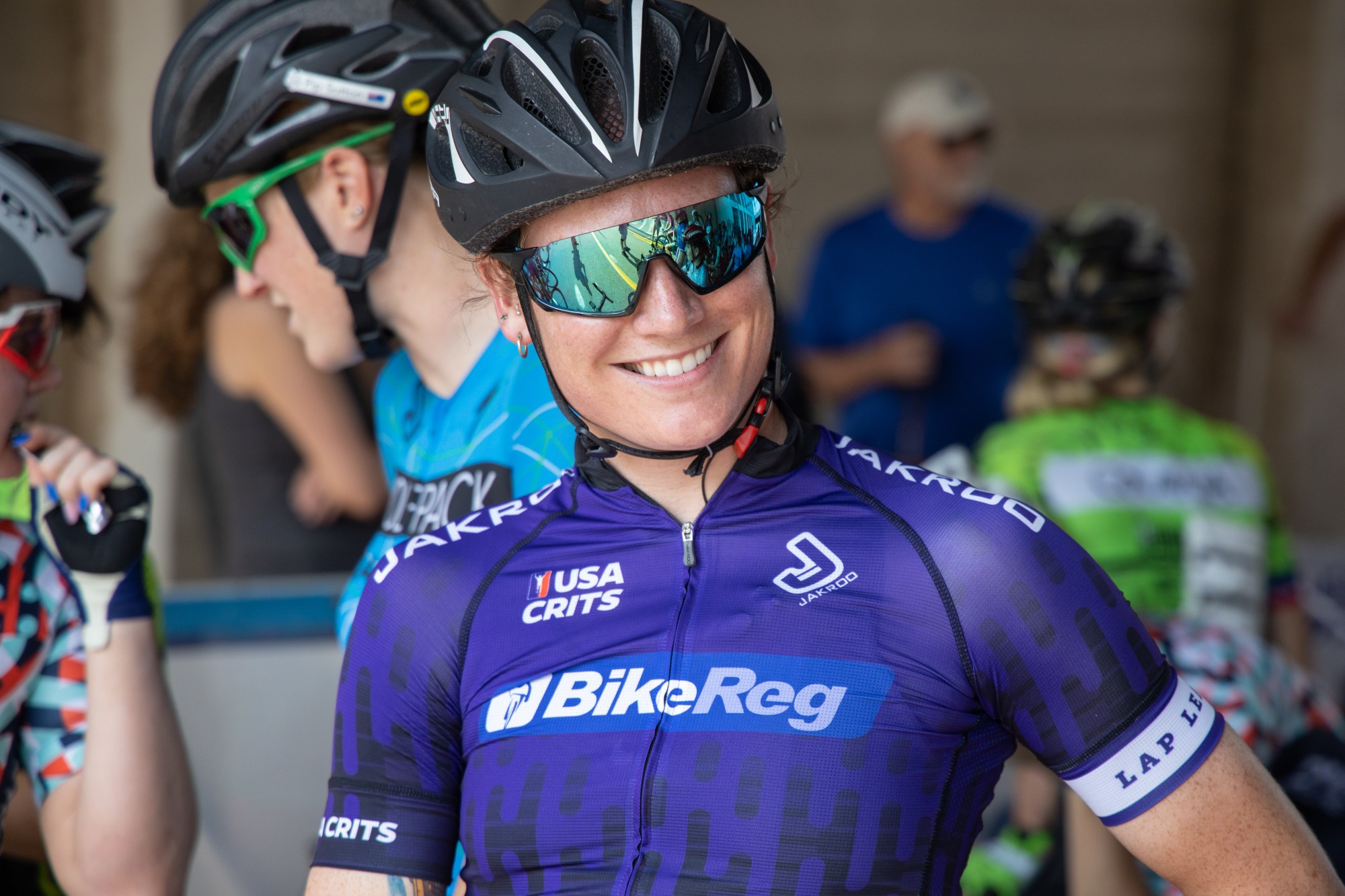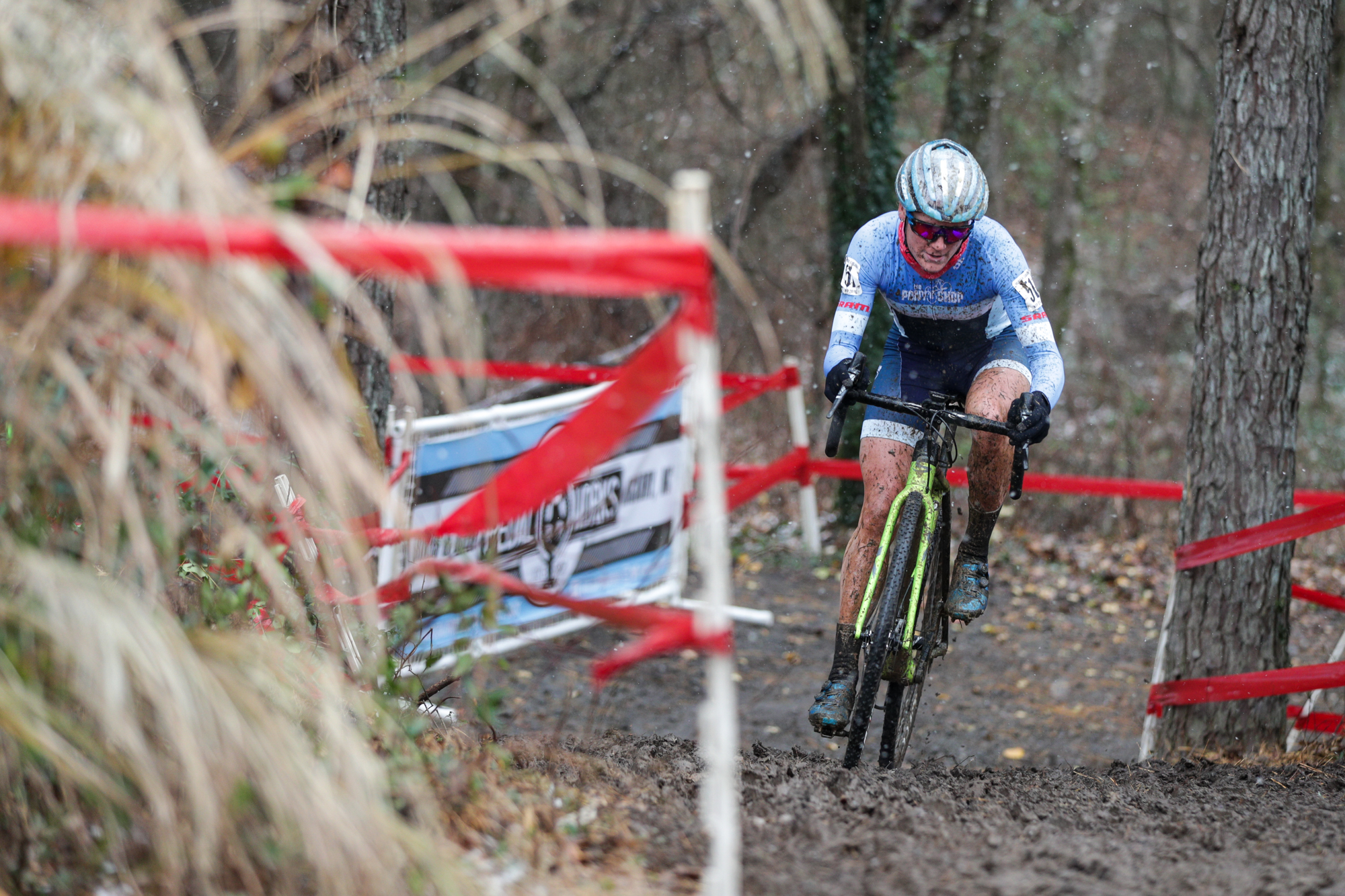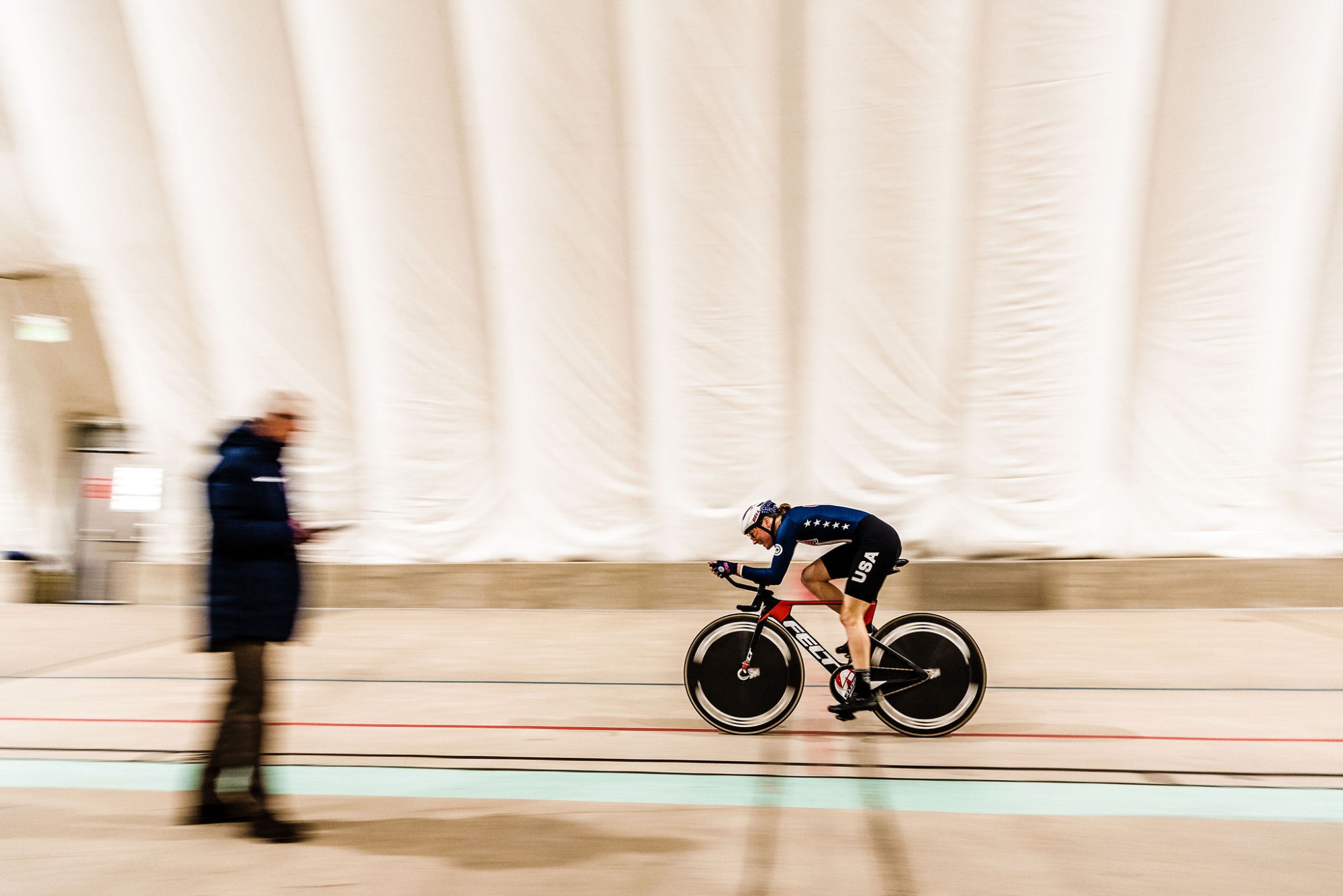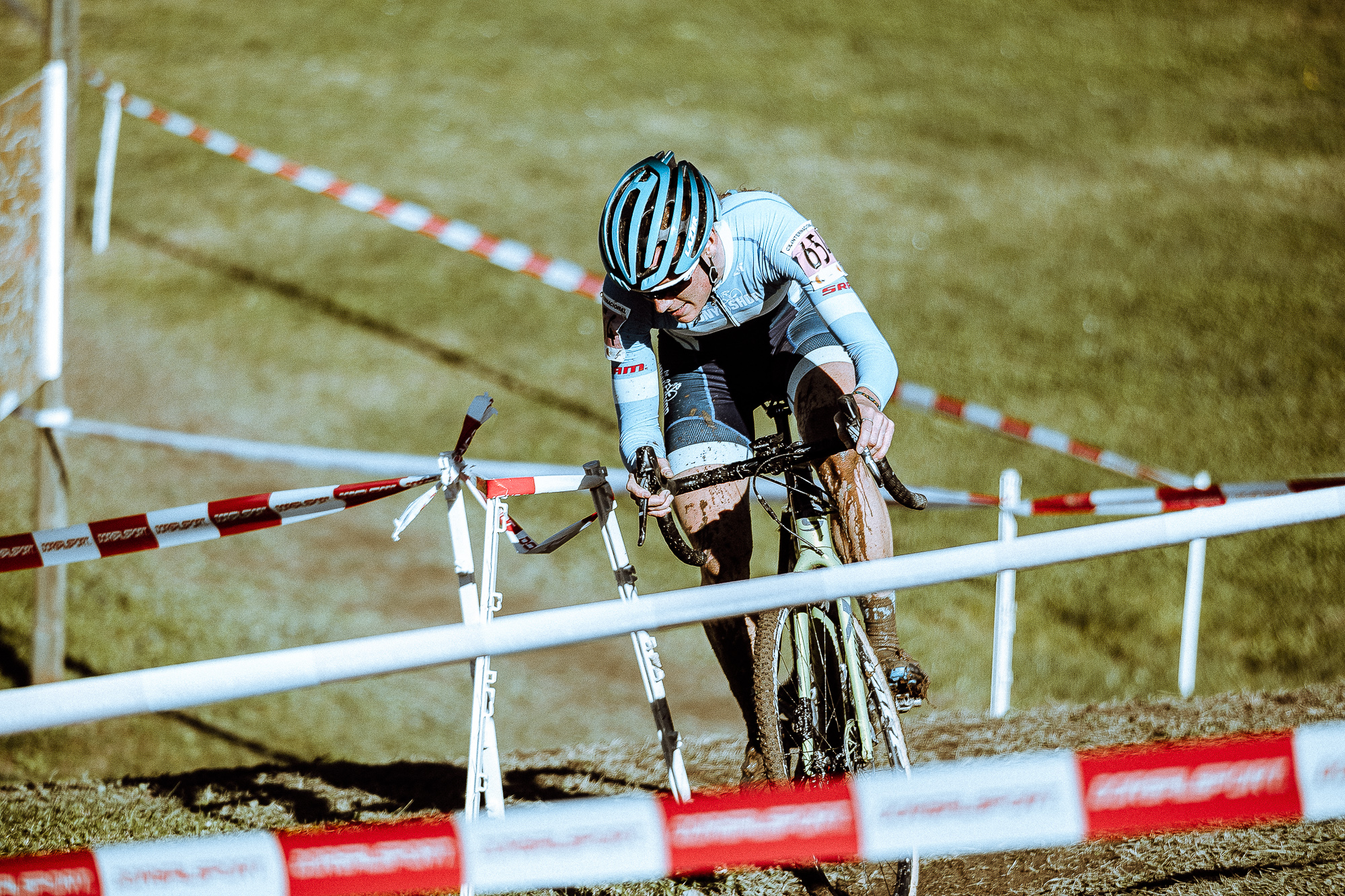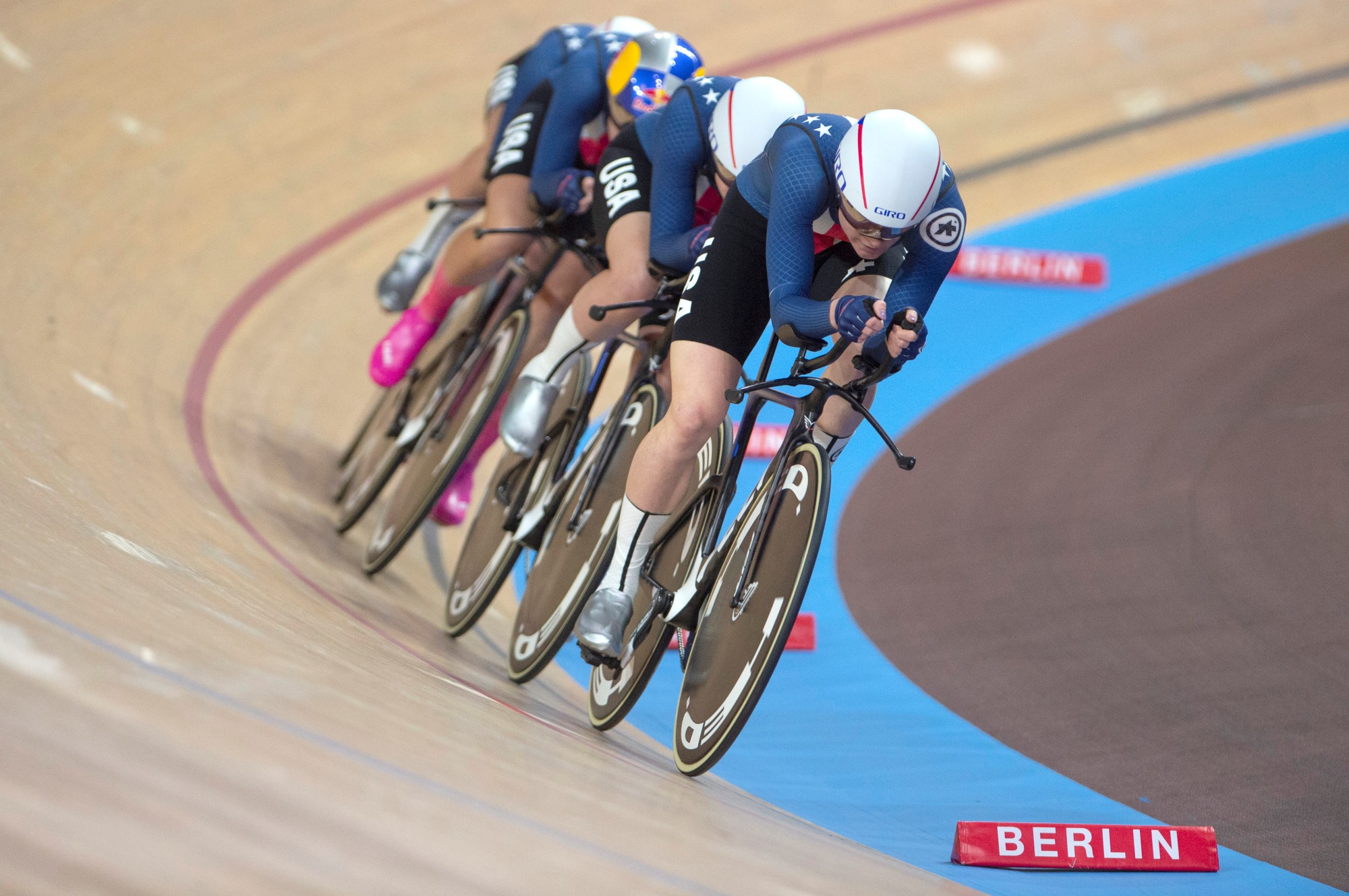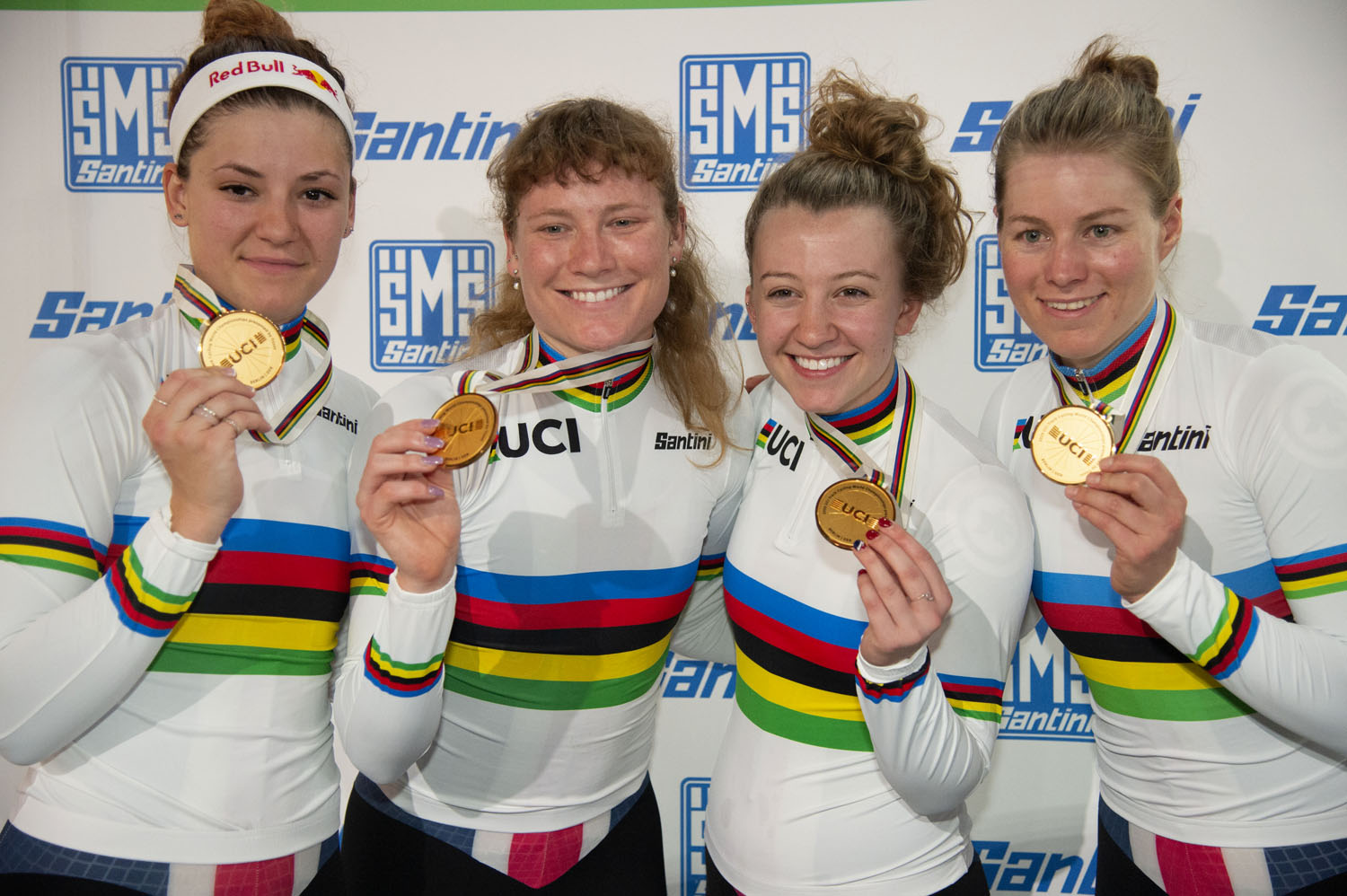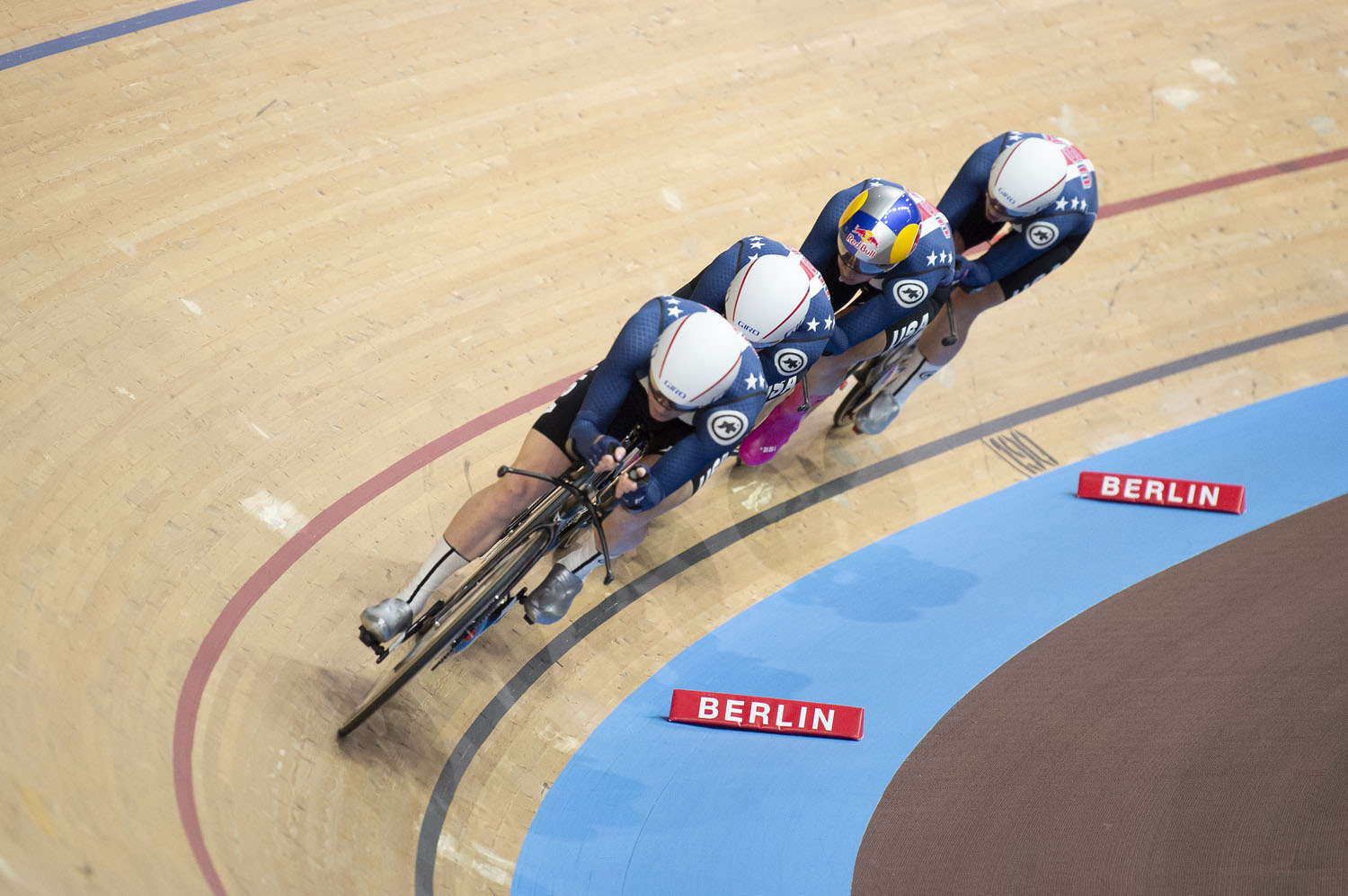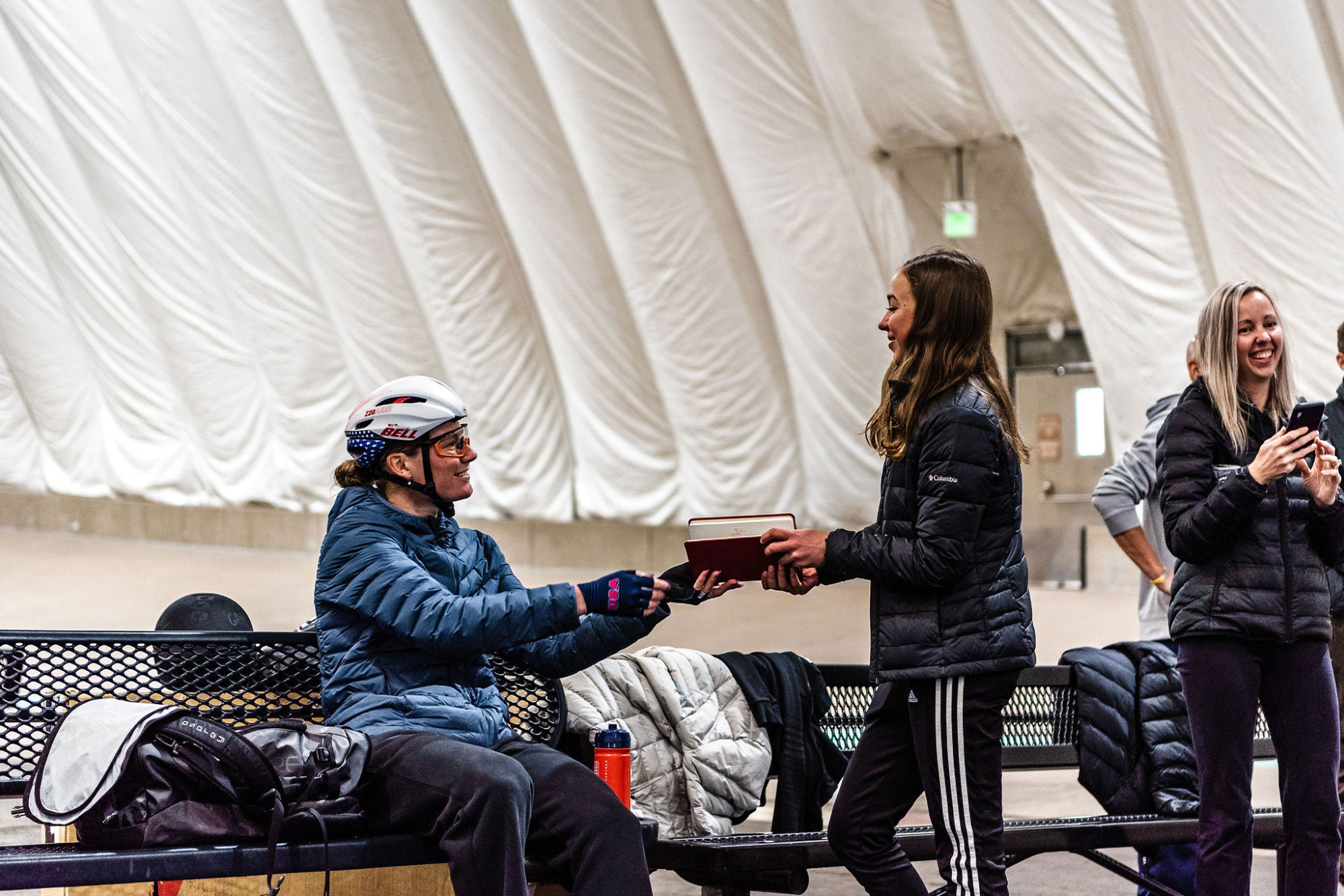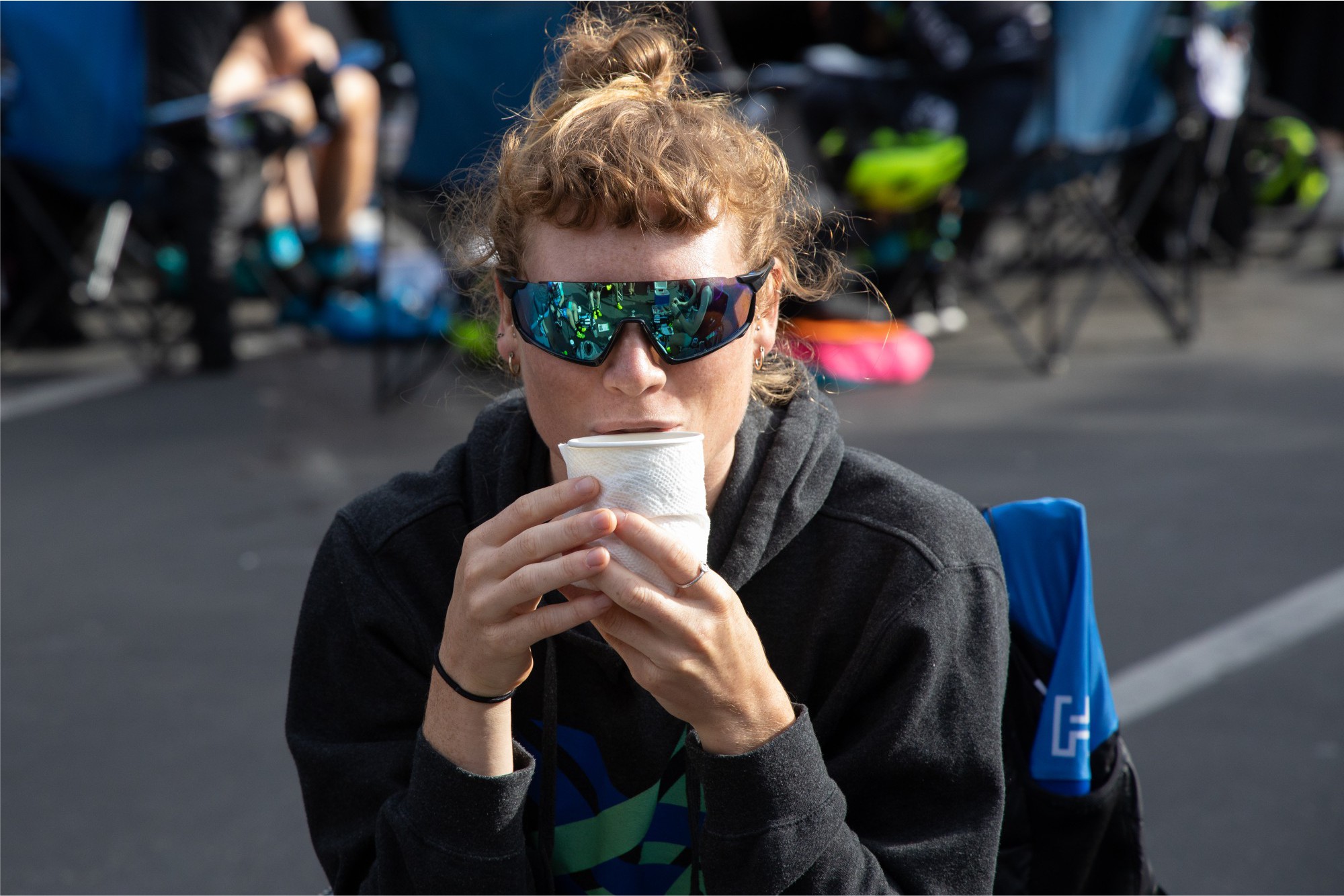Current times are rather hard for everybody, whether you find yourself in quarantine mode or in total lockdown, living in a world completely affected by the COVID-19 pandemic. However, not everything is negative and, even though future plans have been drastically modified, some people like Lily Williams try to make the best out of it. Spending quarantine in Colorado Springs (CO, USA), some days ago we had the chance to talk a bit with Lily about her cycling career, her victory in the team pursuit event in the last track world championships in Berlin, how the virus has postponed the Olympics dream and the role of women in cycling.
About Lily Williams
Could you introduce yourself to someone who does not know you?
My name is Lily. I am originally from Tallahassee (FL) but I am currently living in Colorado Springs (CO) where I am training as part of the US national track cycling team. I started road and cyclocross cycling in 2017 as an amateur. The following year I signed my first pro road contract with Hagens Berman/Supermint for two seasons, while I rode cyclocross for the Pony Shop CX team. This is my third year in pro road cycling in a team called Rally Cycling. I started doing track last year, mainly focusing on improving in the team pursuit. I was a member of the world champion team in Berlin 2020. Considering all that has happened with coronavirus I am very happy we managed to race since that might be the only race we will be doing this year.
How did you discover cycling and what pushed you to compete and become a professional?
I have been running my whole life. I was a runner for around 10 years, until the end of college when I burned out. Then I moved to Chicago for graduate school, where I started working at a bike shop as well. The cycling community there was very welcoming, I would move back there in a heartbeat. A coworker encouraged me to get a road bike and my first cyclocross bike. I started competing and doing group rides and I immediately fell in love with it. Since I was still in college I did the cyclocross season in Chicago for my collegiate team, and I finished second in the Collegiate Nationals that year (2017). That same year I had also won my first UCI race (Fayetteville), and I knew at that point that I wanted to do that professionally. I was having so much fun that I decided to try road racing next summer, but that time with a pro contract from Supermint.
You have had a short but successful trajectory as a pro-cyclist, what can you tell us about it?
Even though this is my third year as a professional, my fitness from being an athlete for 10 years allowed me to make the jump over really quick. The steepest learning curve has been figuring out how to ride technically. Compared to other people, I don’t have the base but I learn pretty fast. My numbers have been improving, I ride more consistently and, though I was fit, I needed to own that kind of fitness. However, I am still competing against people who have 10 years of race experience and are also younger than me. All in all, I believe that the race intuition and strategy that comes from tons of hours in races can be translated from one discipline to another, from running to CX, road and track. So, in the end, I am not at such a disadvantage.
USA track team and world championship
Coming from a start in cyclocross, how did you end up in the USA track team?
At the end of 2018, after cyclocross nationals, I went to the Olympic Training Center (OTC) in Colorado Springs to do some testing on the track. A few days later they invited me back and asked me to join the racing training program. Ever since I started riding I had always set goals, such as going to Worlds for cross or road, but I had not been able to achieve that. So, making it to the track felt pretty special: it was something I had wanted to do for a long time, I knew I had the ability to perform, I would be training with top-level athletes, and I would go to Worlds and maybe to the Olympics. I am just grateful to be involved and to be part of the group.
What is special about track versus the other disciplines you have competed in?
So far, I have focused on team pursuit. Compared to other disciplines it is not so much about strategy but about pacing and riding smoothly. You have to be able to keep the line to be on the draft and to expose your teammates the minimum to the wind. Exchanges, where you go up and come back down the track, have to be performed in one smooth motion, or else you are off the back chasing. I have only been riding for 12 months, whereas there are teams with 8 years of experience. I enjoy the mechanics with the group, the subtleness of it and I thrive in routine and training schedules. In addition to that, it is compatible with road cycling, which is my other main focus.
On the 27th of February, you went to the World Championships in Berlin and all the training and effort paid off, you became world champions.
Throughout 2019 I had been coming to the OTC more often in preparation for Berlin until we had a pretty hard training camp right before Worlds. When we got to Berlin we had four days to acclimate to the track since ours was 333 m and Berlin’s was obviously 250 m. We all felt pretty good leading into it, we were comfortable riding with each other and we were in a good form. The event was divided into three races: qualifying, first-round and finals. Before we went on the track Great Britain set a 4:11 in qualifying. That was pretty soon before we went so I didn’t have much time to stress about it. So far, I had only ridden a 4:15 in Brisbane (Australia) and the team had also set a 4:13 in Minsk (Belarus). Moments right before our turn the coach gave us a schedule that equaled that of GB, he believed we could make it, and we indeed delivered, setting the fastest qualifying time. Definitely, a huge confidence booster. In the first-round, we rode another 4:11 against New Zealand, and we made it to the finals for gold against GB. At that point, I felt pretty confident since the four of us had finished the first-round race and our riding was consistent, though anything could happen. In the finals, I felt very relaxed and in control, I was our fourth and after my second turn in the front I pulled off, but I already knew we were going to win. I was coming down the track and seeing our names on the board with another 4:11 in the pocket. Only five 4:11s had been ridden during those days, three of them were ours. We had become world champions. Just seeing my teammates and people that I knew standing there was pretty surreal. I would say one of the best moments of my life.
From what you said, every millisecond counts in these races, thus training is a very important part of it.
For such short events, seconds are huge numbers, every little bit is important. When I was a runner I was a specialist in the 1500 m, around 4 to 4 ½ minute event, so I am used to pushing myself for that amount of time. In Worlds, I felt so much smoother than earlier in the season, I was involved in the race as opposed to just hanging on there for my dear life. My mindset was in the right spot since I knew what my power numbers were after training. That is one of my favorite parts about racing: seeing training translate into results, and that is what happened in Berlin. We had been doing hyper-specific efforts for months leading into the event, my body had adapted to that kind of effort. It is amazing to be able to take what you did in training and translate it into the race.
Future goals
After becoming a world champion, what would have been next for you if the whole world was not in quarantine?
The Olympic Games were the next big goal for the track team, this is why I am currently at the OTC for the Olympic selection camp. The official team had not been selected yet, we would have probably known around the end of April. My main goal was to make it in that team. Even though the US is already qualified for the pursuit event, with all events frozen, we don’t know if the UCI will host more track races this winter and whether we will have to earn our spot back for the Olympics. At the same time, this could affect who gets selected for the Olympics within the team. However, I will still be training hard and doing all the preparation leading into the Olympics. I am also really missing racing on the road. I would have loved to do a full road calendar this summer, as we had already planned, and maybe going to Europe. Not only because it is fun, but because I am in a new team and I want to deliver performances and make sure that I can continue next year.
We are facing some exceptional circumstances with the whole COVID-19 pandemic around the world. How has this affected you as an athlete?
The biggest change for me is that I will now have time to relocate here to Colorado Springs where I will have full access to the velodrome facilities. This is especially important for me since I have so much work to do and I have a lot of room for improvement compared to other riders who have been competing for years. Good things that have come out from this is that I have already been able to train with my teammates for 5 weeks and I will continue doing so throughout the year. I feel like that is very special and we will get to know each other better during the year and the Olympic selection process. Also, all things considered, the government in Colorado is very proactive and they shut down things immediately, but we can still train on the roads, though it has been snowing so we have been training inside.
Women in cycling
This is your third year as a professional cyclist, what is your opinion of women in cycling?
I think it is really hard to sign a pro contract. There are some differences between the US and Europe. In Europe, there are more race opportunities for young women like juniors or those who are starting, but in the US it is probably a bit more egalitarian in terms of equal pay opportunities. I feel like I have had some opportunities here that I couldn’t have afforded elsewhere. For example, working at a bike shop is the only reason I could start in the sport. But in general, cycling is a pretty intimidating sport for a lot of women since it requires a bit of aggression and risk-taking. In general, women are more conservative and cycling isn’t necessarily being safe and intelligent.
How do you see yourself as a female athlete?
I don’t necessarily see myself as a woman in sport as much as just someone who does sport, though that hasn’t always been the case for female athletes. I think that recently female athletes are regarded as athletes who compete against other females as opposed to being some exemplary role models.
Your trajectory in pro-cycling has not been very long. So far, have you seen any moves from the UCI, race organizers or similar towards decreasing the differences between genders?
I haven’t been racing long enough to see substantial changes. Some of my current or former teammates talk about races that used to exist 15 years ago and have disappeared. There was no equal pay but at least there were more race opportunities, which is more important to me than money, and you improve your racing skills and visibility. Getting the Tour of California canceled was the biggest blow for us this year. It was not equal pay but it was a World Tour race on American soil, a perfect opportunity to earn a spot on a European team. Also, here in the US, if an event is going away, the first thing that gets removed is the women’s race as opposed to folding it entirely. But that is just like any business since the participation of women is inferior. That is not the case with criterium racing that is 100% equal in numbers. The races are more entertaining, the broadcast has a larger revenue and they are shorter, which is beneficial from the rider and spectator point of view. I just love racing in them.
Reflection
A message about professional cycling.
What influences everything I do on the bike is that I like and enjoy it. Everything still feels pretty new and exciting to me, whereas somebody who has been racing for 10 years might think of it as a job. Every success that I have had on the bike is because I enjoyed it, no matter the kind of bike or race. Sometimes it is easy to forget it when you are negotiating for a salary, competing in World Cup events or questioning your performance for future support like renewal or funding. At the same time being an athlete for a long time has really helped me to get where I am today in cycling quickly, I know my trajectory isn’t normal at all. Some people think being a pro is super easy, it is a lot of fun but it is not always sunshine and roses. I definitely thrive in a very structured environment, training is my number one priority every single day. It takes a special kind of mindset to have fun in this demanding routine. In the end, simply remember to enjoy what you are doing.
Photos by: Adam Koble, HED Wheels, Casey Gibson, USA Cycling, Snowy Mountain Photography, Bruce Buckley, Brazo de Hierro.



